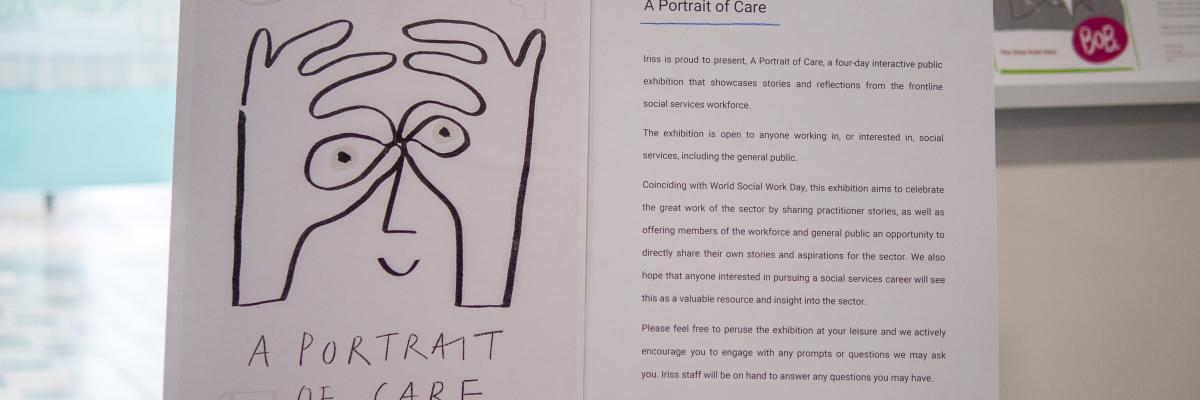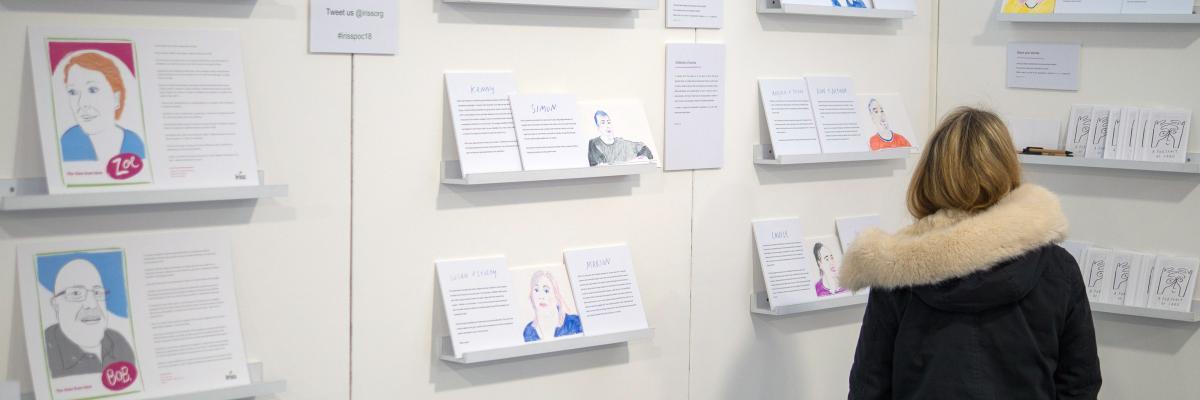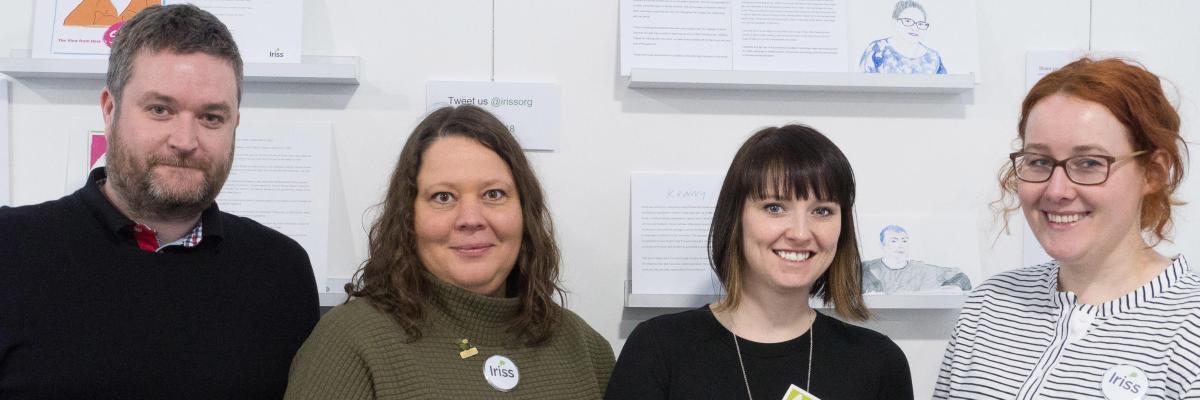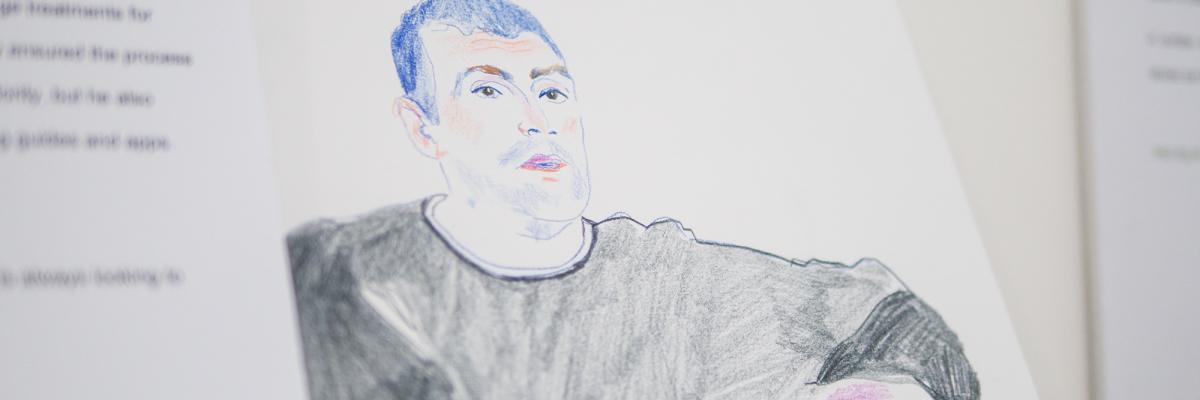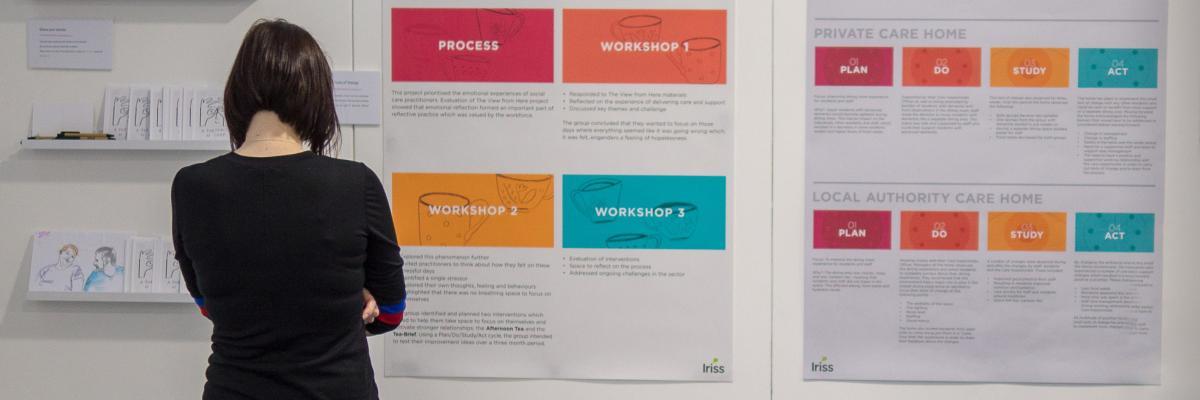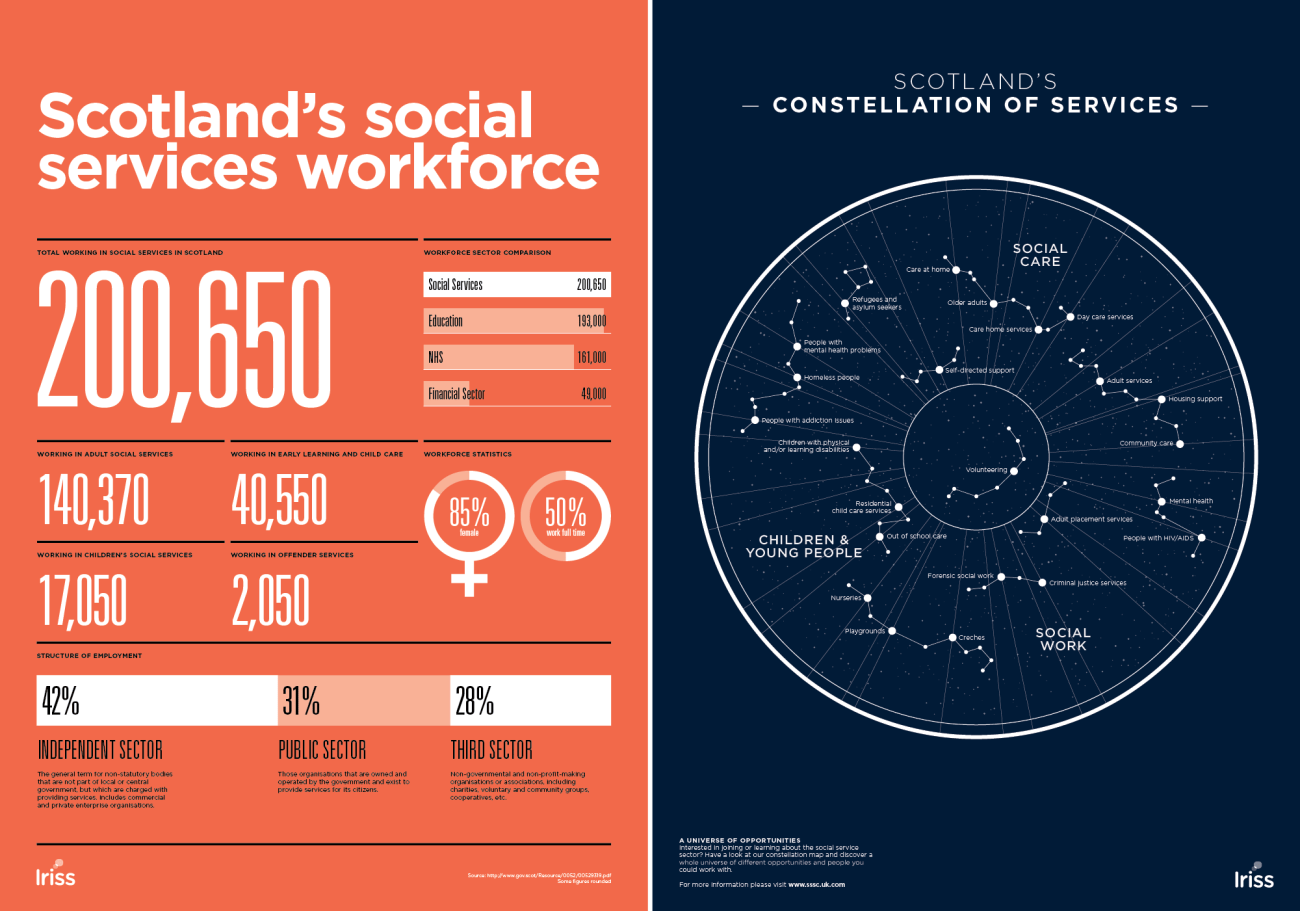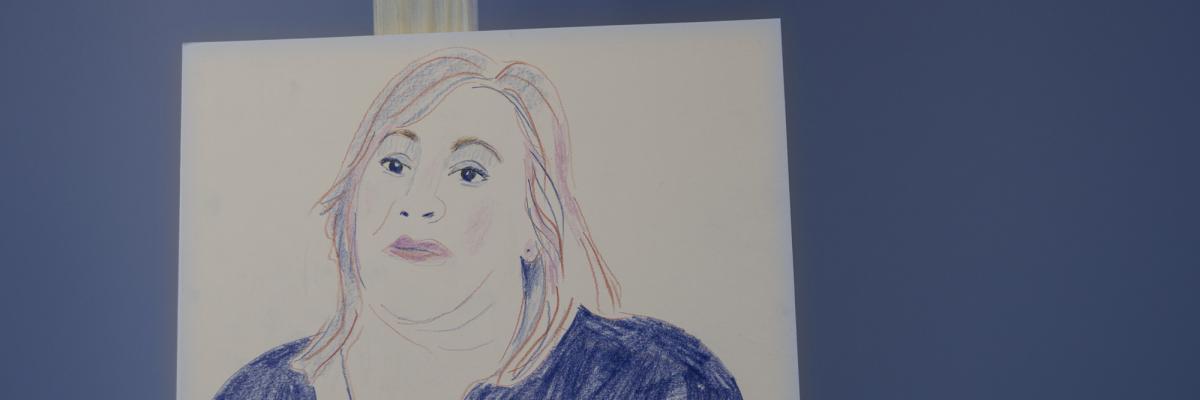In January 2018, Iriss asked the sector to share its good practice stories with the aim of building a valuable resource that could influence, and possibly change, public perceptions and understanding of what it means to work in social services in Scotland.
A number of different people and organisations responded to our call-out and submitted stories were exhibited alongside other sector information at a pop-up exhibition titled, A Portrait of Care. It was held at Edward House on busy Sauchiehall Street in Glasgow.
The pop-up event ran from the 15-17 March and had over 100 visitors through the door, including those from allied organisations and the general public. Holding the exhibition in a busy public space meant we would be able to engage with a wider audience.
Industry day
The exhibition kicked off with an Industry Day, which focused primarily on those who already work in the sector or who were interested in recruitment or retention of staff. After several cups of tea and chats with visitors, we live streamed our ‘table-talk’ which included a chat with Rikke Iversholt (Director, Iriss); Richard Nisbet (Development Officer, Goodmoves); Kerry Cannon (SSSC); and Ali Jones (Programme Manager, Iriss).
Each participant gave an insight into their journey into social services and further information regarding possible paths or information people could investigate if they were interested in pursuing a career in social services. Each participant also talked about why they continued to work in the sector and detailed the qualities and characteristics that were required for a career in care and support.
Education day
The second day focused on education. We also live-streamed the day’s ‘table-talk’ featuring Colin Paton (Team Leader, Quality Assurance and Improvement, Perth and Kinross Council); Zandra Nelson (Senior Practitioner in Learning Disability services in Aberdeenshire); and David Brady (4th Year Student Integrated Health and Social Care student at UWS). Each speaker gave a passionate insight into their journey into the sector via education, outlining a number of possible routes for anyone interested.
Of note was that on both days, speakers highlighted the multidisciplinary nature of the sector, and its need for different types of people with different knowledge and skills. They also highlighted how it benefits from diversity.
Final day
On Saturday 17 March, the exhibition culminated in a ‘public day’ which gave people the opportunity to peruse and contribute to the exhibition at their leisure. The day also offered opportunities to make new connections and ask some key questions, which can be seen below.
Thank you to everyone who visited A Portrait of Care. Your input and participation was greatly appreciated. We would especially like to thank all our speakers. They were an inspirational bunch who gave us and our visitors much food for thought. Recordings of the ‘table-talks’ are available on our YouTube channel.
We hope that the information we have collected and the stories we have shared have sparked a new way of thinking in the sector, with a drive to share more good practice stories and celebrate the hard work and dedication of our frontline social services workforce.
We hope to develop this idea and our public engagement through further exhibitions, with different collaborations, and promoting new ideas. Join our mailing list to keep up-to-date on developments.
Reflections and questions
During the exhibition, we asked the general public to express their views about the sector by answering the following questions:
Why did you want to work in social services?
What are your aspirations for the sector?
What do we need to get there?
What qualities do you think you need to work in social services?
What are your goals within the sector?
Exhibition posters
Exhibition stories
Charlotte is part of our Alzheimer Scotland Technology team. She visited Malcolm, Imke and Dementia Dog, Webb, at their home to talk about how technology could help Malcolm with everyday living. Malcolm and Imke are already linked in with our colleagues at Dementia Dog. When Fiona from Dementia Dog suggested they might also be interested in the Alzheimer Scotland Tech Team, they were keen to know more. They are already using some consumer technology around the home and find it useful. Malcolm has an Amazon Echo (Alexa) which helps him to do his exercises twice a day. Alexa also turns on the lights, plays music and audio books, and helps him call his daughter in Germany.
Charlotte got to know Malcolm and Imke over a cup of tea. After hearing their concerns about safer walking, she introduced them to the One Touch GPS to support Malcolm to stay independent and active.
Charlotte and the rest of the Alzheimer Scotland Technology team are working hard to create pathways to digital support, and provide technology products and services to families across Scotland.
Louise has been supporting a mum and a dad with two small children - currently in foster care - using Bookbug, and arts and crafts based interactions during their contact sessions multiple times a week. She has used the books, What the Ladybird Heard and Going on a Bear Hunt, to help parents make ladybird hats and play in puddles in the park. Both mum and dad have experienced significant neglect and have responded well to the creative arts and play-based work with their children. However, they both needed significant prompting, as simple modelling and re-direction wasn't enough in the beginning.
Parents and children are thriving on the arts, play and book-based interactions, as well as the positive, encouraging feedback from Louise. Regardless of permanency outcomes for this family, their time together during contact has improved due to the use of Bookbug, Louise's respect for the parents, and her creativity.
Simon pushed and promoted for a service user to get cutting edge treatments for hepatitis which will transform and extend his life. Simon not only ensured the process was done with the service users’ complex health needs as a priority, but he also made the process as user friendly for the staff as possible using guides and apps. He even made himself available when on holiday.
As a team this made the whole process less stressful. Simon is always looking to follow good practice and also guide the team.
John has been supported by Katie for a number of years now. In the past few years John was diagnosed with dementia and Katie has continued to support him through this.
Recently the organisation has been become involved in a research project being led by the University of Stirling called ‘Life through a lens’, which is looking at the impact of non-drug interventions for people with a learning disability and dementia.
John, with Katie’s support, is taking part in the project and together they are developing his memory box. This has involved John buying and selecting items to put in it and decorating it himself. Katie has also supported John to buy an Mp3 player and collate songs for his Playlist for Life, which along with his memory box mementos enables John to reminisce about his past, which he is very proud to share with people.
Simon is a young man who has been supported by us since July 2014. Recently someone who knows Simon got in touch with us to say that she and Simon seem to visit their local supermarket on the same day and that this gave her the chance to see Simon going about his daily business. As she knows him she paused to see how he and his support team get along with shopping, a task which he can find difficult. She observed that he was really well supported by Marion and another worker who were supporting him to put his own shopping through the self-service check-out, an activity he was fully engaged with. She noted the warmth of their relationship with Simon as they smiled and chatted away with him and commented how observing this very ordinary situation left her with a big grin on her face.
Community Lifestyles began supporting Christopher when he returned home following a placement in residential school. A small team of workers got to know Christopher and his support was going really well, however, some team changes created a period of uncertainty for Christopher and his family; they were understandably nervous about the potential impact of this. At this point, Pamela became team leader for Christopher’s support and immediately recognised the importance of managing this transition period for everyone.
From the start she focused on maintaining good relationships, ensuring mum in particular was fully involved in recruiting new workers whom both she and Christopher were confident would be a good fit for him. Really good communication with her team, Christopher and his family, as well a flexible, creative and very professional approach to the team leader role, has led to positive outcomes for Christopher and his family.

